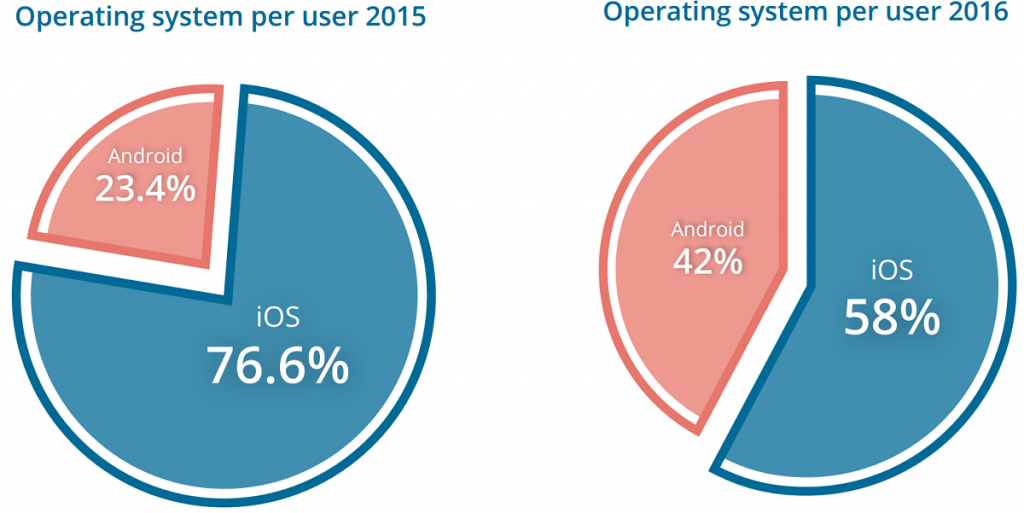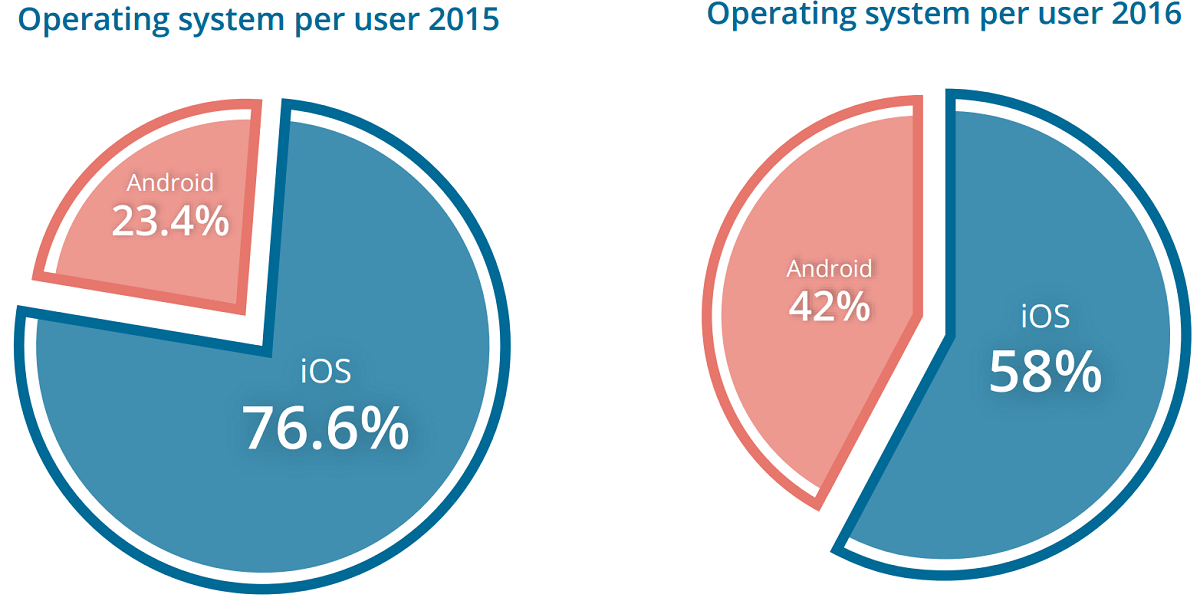Two great reports were recently published giving the mobile industry a good look at what’s going on with enterprise-level companies and their mobile strategy in 2017. The reports are from ContractIQ and Fliplet and here are the three data points that we thought were most interesting.
1. Companies gain 240 hours of work per year using enterprise apps.
According to the report from Fliplet, companies that utilize enterprise apps get more work out of their employees to the tune of 240 extra hours a year. This stat goes hand-in-hand with Fliplet also reporting that 71% of employees spend 2+ hours a week working (ie. accessing company info) from their mobile devices.

This just reaffirms that we live and work in a mobile-first environment, and it behooves companies to change their internal work-structure to take advantage of how employees are already utilizing technology. By making it easier to work remotely or to perform tasks on phones or tablets, enterprises are equipping the modern worker to be productive on his or her own terms. And far from making people more lazy, the numbers show that a mobile workforce is a productive workforce.
2. 60% of businesses now have ROI goals for mobile apps.
In 2015, only 30% of businesses that built apps for themselves had revenue goals for those apps. Meaning, less than a third of companies didn’t really know whether an app was actually doing anything for their bottom line. Luckily in 2016, we’re already at 60%. This is a big jump, and an exciting one.
The reason this is so important is that enterprise apps are created for 1) productivity, and 2) collecting data. Since developing a mobile app can be a costly investment, it’s incredibly important for every company to analyze the ROI on both these points. Is your company more productive using these apps? Is the data you’re collecting useful in increasing efficiency or cutting costs? Now that the majority of enterprises are taking apps seriously, we’re happy that these apps are being put to the ROI test. After all, as app developers, we know just how efficient they can be at increasing revenue. As more companies put actual hard numbers behind this, it will only increase the appetite for more apps.
And as the Fliplet report shows, that appetite is growing. Enterprises created an average of 10.6 apps in 2016, compared to 4.7 in 2015.
3. Android is gaining on iOS for enterprise app development.

The pie chart couldn’t be clearer: Android won a big slice of the pie from iOS from 2015 to 2016 going from 23.4% to 42%. This is actually a surprising statistic since overall, the iPhone has gained market share compared to Android phones. So why the discrepancy?
The best theory seems to be that this is due to more and more enterprises having a BYOD (Bring Your Own Device) mindset when approaching mobile. Remember, Android still has a global majority due to the sheer number of phones and tablets that run the OS. As more devices “come online” to be used for work purposes (a direct result of more companies going mobile-first), it makes sense that Android is gaining steam with enterprise users.
And of course, this means that more and more enterprise apps have to be developed for Android to accommodate these devices. We expect this trend to continue, and it will be an interesting battle to see iOS and Android and Windows competing for enterprise app market share.
Is your enterprise taking advantage of mobile apps?







